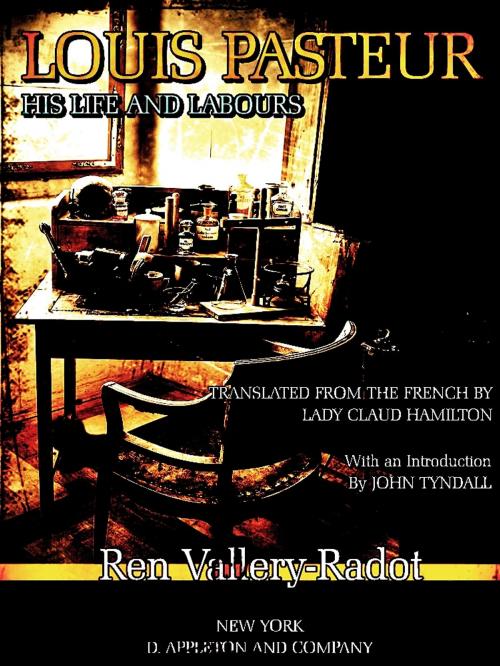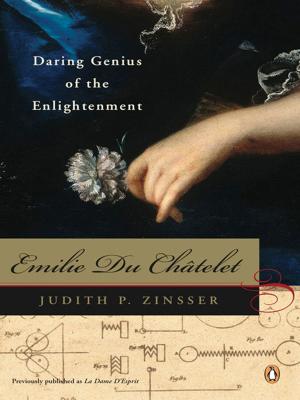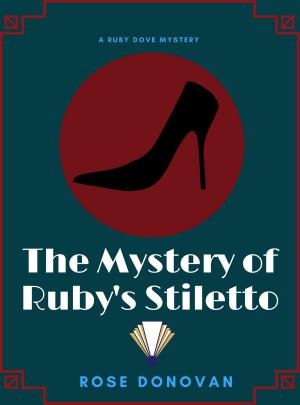Louis Pasteur
His Life and Labours (English Edition)
Nonfiction, Science & Nature, Science, Chemistry, Physical & Theoretical, Biography & Memoir, Philosophers, Historical| Author: | René Vallery-Radot, John Tyndall, Lady Claude Hamilton | ISBN: | 1230000295053 |
| Publisher: | D. APPLETON AND COMPANY | Publication: | February 2, 2015 |
| Imprint: | Language: | English |
| Author: | René Vallery-Radot, John Tyndall, Lady Claude Hamilton |
| ISBN: | 1230000295053 |
| Publisher: | D. APPLETON AND COMPANY |
| Publication: | February 2, 2015 |
| Imprint: | |
| Language: | English |
Example in this ebook
In the salon of a distinguished man, or of a great writer, there is often to be found a person who, without being either a fellow-worker or a disciple, without even possessing the scientific or literary qualities which might explain his habitual presence, lives nevertheless in complete familiarity with the man whom all around him call 'dear master.' Whence comes this intimate one? who is he? what is his business? He is only known as a friend of the house. He has no other title, and he is almost proud of having no other. Stripped of his own personality, he speaks only of the labours and the success of his illustrious friend, in the radiance of whose glory he moves with delight.
The author of this work is a person of this description. Intimately connected with the life of M. Pasteur, and a constant inmate of his laboratory, he has passed happy years near this great investigator, who has discovered a new world—the world of the infinitely little. Since the first studies of M. Pasteur on molecular dissymmetry, down to his most recent investigations on hydrophobia, on virulent diseases, and on the artificial cultures of living contagia, which have been converted by such cultures into veritable vaccines—passing by the intermediate celebrated experiments on spontaneous generation, fermentation, the diseases of wine, the manufacture of beer and vinegar, and the diseases of silkworms—the author of these pages has been able, if not to witness all, at least to follow in its principal developments this uninterrupted series of scientific conquests.
'What a beautiful book,' he remarked one day to M. Pasteur, 'might be written about all this!'
'But it is all in the Comptes-rendus of the Academy of Sciences.'
'It is not for the readers of the Comptes-rendus that such a book needs to be written, but for the great public, who know that you have done great things, but who know it only vaguely, by the records of journals, or by fragments of biography. The persons are few who know the history of your discoveries. What was your point of departure? How have you arrived at such and such principles, and at the consequences which flow from these principles? What is the connection and rigorous bond of your method? These are the things which it would be interesting to put together in a book which would have some chance of enduring as an historic document.'
'I could not waste my time in going back upon things already accomplished.'
'No; but my desire is that someone else should consecrate his time to the work. And listen,' added this friend, with audacious frankness—'do you know by whom, in my opinion, this book ought to be written? By a man who, without having been in any way trained to follow in your footsteps, is animated by the most lively desire to understand the course which you have pursued; who, while living at your side, has been each day impregnated with your method and your ideas; who, having had the happiness of comprehending your life and its achievements, does not wish to confine the pleasure thus derived to himself alone.'
'Where, then,' interrupted Pasteur with a kindly smile, not without a tinge of irony, 'is this man, at once so happy, and so impatient to share his happiness with others?'
To be continue in this ebook
Example in this ebook
In the salon of a distinguished man, or of a great writer, there is often to be found a person who, without being either a fellow-worker or a disciple, without even possessing the scientific or literary qualities which might explain his habitual presence, lives nevertheless in complete familiarity with the man whom all around him call 'dear master.' Whence comes this intimate one? who is he? what is his business? He is only known as a friend of the house. He has no other title, and he is almost proud of having no other. Stripped of his own personality, he speaks only of the labours and the success of his illustrious friend, in the radiance of whose glory he moves with delight.
The author of this work is a person of this description. Intimately connected with the life of M. Pasteur, and a constant inmate of his laboratory, he has passed happy years near this great investigator, who has discovered a new world—the world of the infinitely little. Since the first studies of M. Pasteur on molecular dissymmetry, down to his most recent investigations on hydrophobia, on virulent diseases, and on the artificial cultures of living contagia, which have been converted by such cultures into veritable vaccines—passing by the intermediate celebrated experiments on spontaneous generation, fermentation, the diseases of wine, the manufacture of beer and vinegar, and the diseases of silkworms—the author of these pages has been able, if not to witness all, at least to follow in its principal developments this uninterrupted series of scientific conquests.
'What a beautiful book,' he remarked one day to M. Pasteur, 'might be written about all this!'
'But it is all in the Comptes-rendus of the Academy of Sciences.'
'It is not for the readers of the Comptes-rendus that such a book needs to be written, but for the great public, who know that you have done great things, but who know it only vaguely, by the records of journals, or by fragments of biography. The persons are few who know the history of your discoveries. What was your point of departure? How have you arrived at such and such principles, and at the consequences which flow from these principles? What is the connection and rigorous bond of your method? These are the things which it would be interesting to put together in a book which would have some chance of enduring as an historic document.'
'I could not waste my time in going back upon things already accomplished.'
'No; but my desire is that someone else should consecrate his time to the work. And listen,' added this friend, with audacious frankness—'do you know by whom, in my opinion, this book ought to be written? By a man who, without having been in any way trained to follow in your footsteps, is animated by the most lively desire to understand the course which you have pursued; who, while living at your side, has been each day impregnated with your method and your ideas; who, having had the happiness of comprehending your life and its achievements, does not wish to confine the pleasure thus derived to himself alone.'
'Where, then,' interrupted Pasteur with a kindly smile, not without a tinge of irony, 'is this man, at once so happy, and so impatient to share his happiness with others?'
To be continue in this ebook















